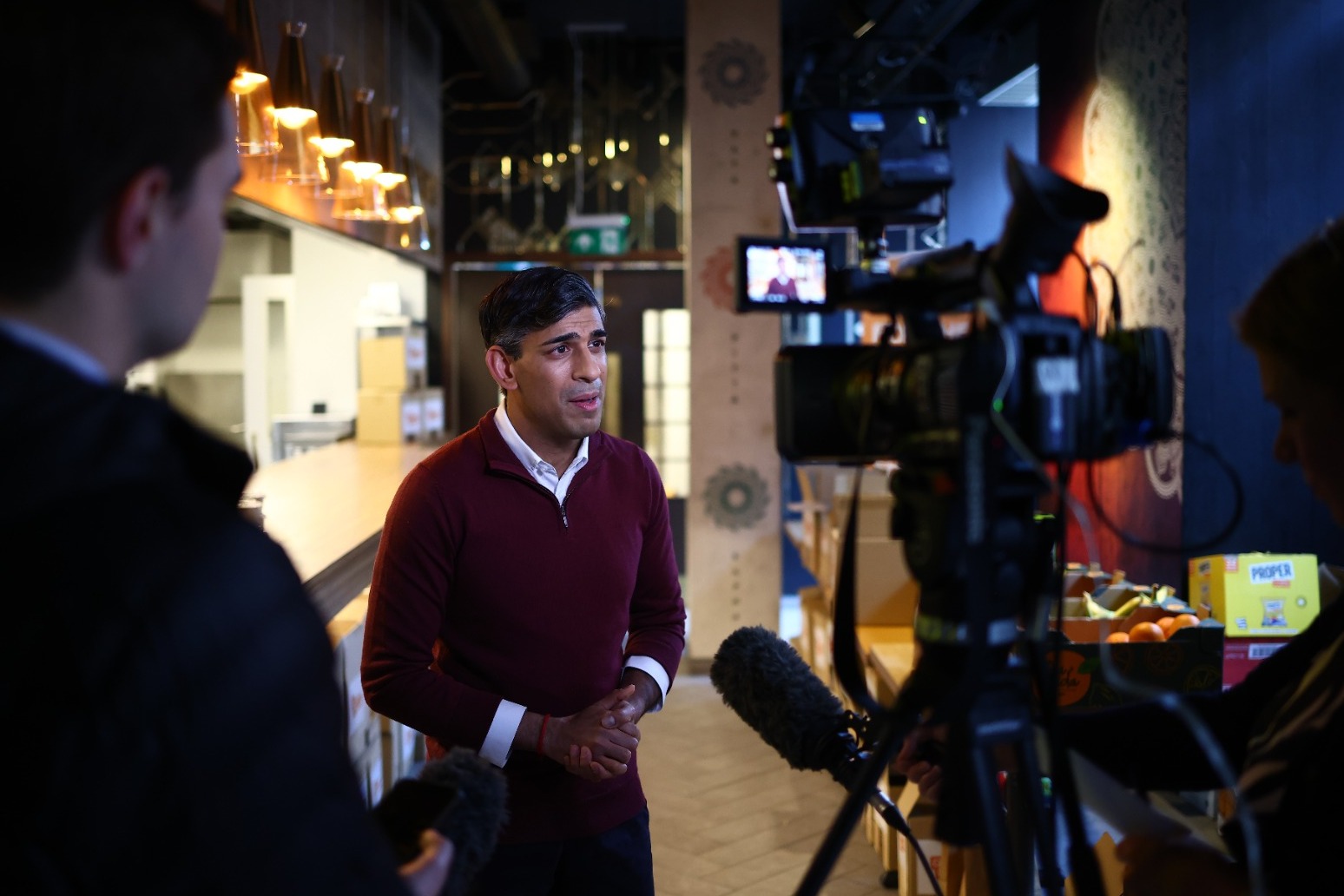
Sunak ‘deeply concerned’ about possible Israeli offensive in Rafah
Rishi Sunak said he is “deeply concerned” about a possible Israeli offensive in the southern Gaza city of Rafah, “given the number of civilians that are sheltering there”.
The Prime Minister on Monday said he has raised his concerns with his Israeli counterpart Benjamin Netanyahu and called for a pause in fighting to allow more aid into the war-torn territory.
Israel has faced warnings from other allies, including US President Joe Biden, and humanitarian agencies over the potential harm to more than a million Palestinian civilians in Rafah if it carries out its long-threatened attack.
The Israeli military has told around 100,000 Palestinians to leave parts of the city, signalling that a ground invasion could be imminent.
Israel had previously paused its plan to attack Rafah, which it says is the last significant Hamas stronghold, to allow for negotiations over the release of Israeli hostages by Hamas.
But ceasefire talks appear to have stalled, with Israeli ministers claiming Hamas was not serious about a deal.
Mr Netanyahu said seizing Rafah is key to ensuring the the militant group is dismantled for good.
Mr Sunak, speaking during a visit to a north London community centre on Monday, told broadcasters: “I’ve been very consistent that we are deeply concerned about the prospect of a military incursion into Rafah, given the number of civilians that are sheltering there and the importance of that crossing for aid.
“I’ve made those points repeatedly to Prime Minister Netanyahu.
“The priority right now should be on all parties, but particularly Hamas, to agree to a deal to release hostages and allow more aid to go in as part of a temporary pause, which will allow us to build a sustainable ceasefire. That’s the best way to end the suffering. And that’s what I continue to call on all parties to do.”
Israel’s army told thousands of people to evacuate eastern Rafah to what Israel has designated a humanitarian zone on the Mediterranean coast, while Israeli strikes overnight reportedly killed at least a dozen people.
A deadly rocket attack by Hamas from Rafah on Sunday against Kerem Shalom, one of Israel’s main crossings for delivering assistance, may have spurred Israel’s latest move.
The Israel Defence Forces said the temporary evacuation is “limited in scope” and “and not a wide-scale evacuation of Rafah”.
More than half of Gaza’s population has taken refuge in the Strip’s southernmost city during the seven-month war.
Labour leader Sir Keir Starmer said on X: “With more than a million Palestinian civilians sheltering in Rafah, an Israeli offensive must not go ahead.
“There must be an immediate ceasefire, the immediate release of all hostages, and unimpeded aid into Gaza that can be delivered regularly, quickly and safely.”
Shadow foreign secretary David Lammy said an Israeli military operation in Rafah “would be catastrophic”, while Lisa Nandy, shadow international development minister, said people there “have nowhere else to go”.
A spokesperson for the charity ActionAid said: “Forcing over a million displaced Palestinians from Rafah to evacuate without a safe destination is not only unlawful but would lead to catastrophic consequences.
“Our aid workers are reporting some of the most severe conditions in recent memory with widespread disease, starvation and chaos.
“Let us be clear, there are no safe zones in Gaza.
“The international community must act swiftly to prevent further atrocities and hold themselves as well as the Israeli government to account. If an invasion of Rafah is your ‘red line’ will you do everything possible to stop this imminent attack?”
Madeleine McGovern, humanitarian advocacy adviser for aid organisation Care International UK, said: “The UK Government must act urgently to prevent an expansion of military operations in Rafah, which would place 1.5 million men, women and children sheltering in Rafah at unacceptable risk.
“There is simply nowhere safe to go in Gaza and international law is clear.
“Civilians in Rafah, already exhausted and starving, must be protected.”
Islamic Relief warned that al Mawasi, the coastal area to where Palestinians have been ordered to move, is not safe.
“Civilians sheltering there say they continue to face attacks and severe shortages of food, water and other vital aid.
“Forcing more people there will make the humanitarian crisis even worse.”
Sally Abi-Khalil, Oxfam’s Middle East and North Africa regional director, said: “The fear in Rafah is palpable, as people who have already been forced to flee across Gaza multiple times must now move again.
“It’s unfathomable that one government is allowed to ignore all warnings of the catastrophic humanitarian cost with full impunity, and to callously press forward in chilling disregard for human life, international law, and the ICJ (International Court of Justice) ruling to prevent genocide.”
The Israel-Hamas war was triggered by Hamas’s October 7 attack on Israel that killed 1,200 people and saw another 250 taken hostage.
Israel’s offensive in Gaza has killed more than 34,700 people, according to the local health ministry, and swathes of the population are on the brink of starvation.
Published: by Radio NewsHub